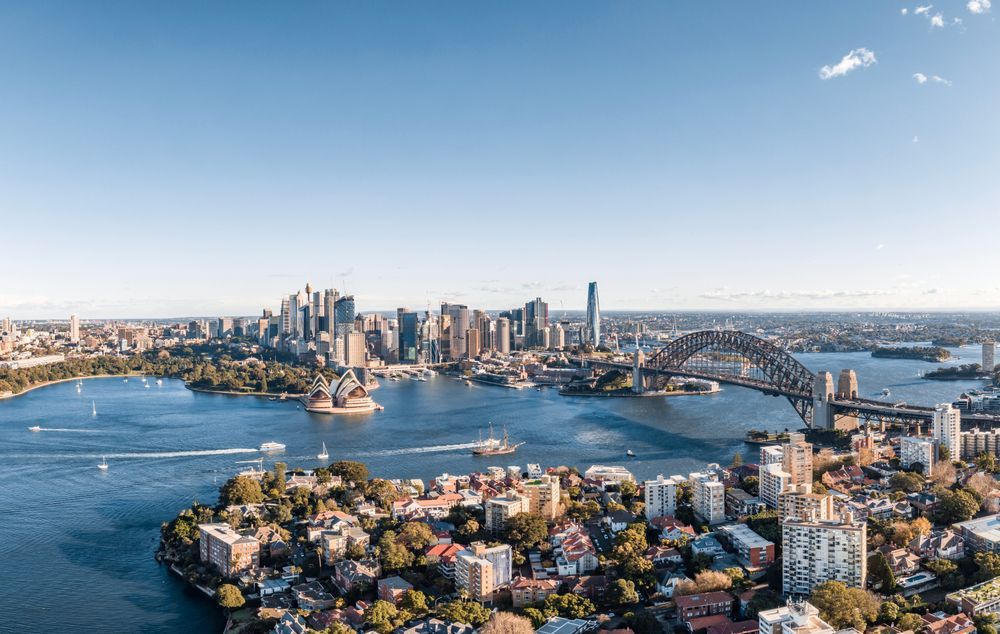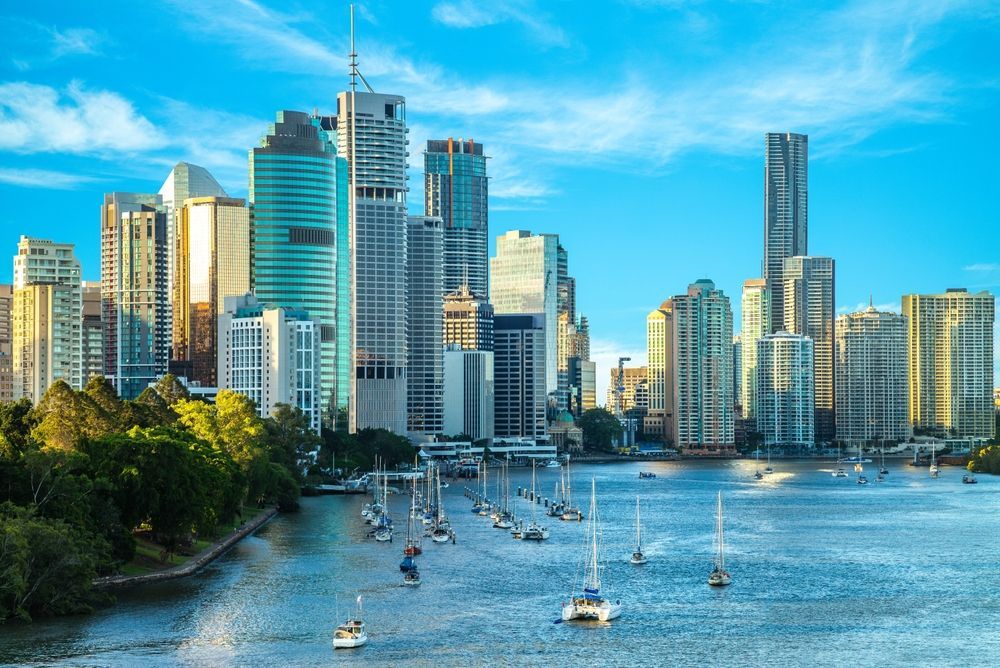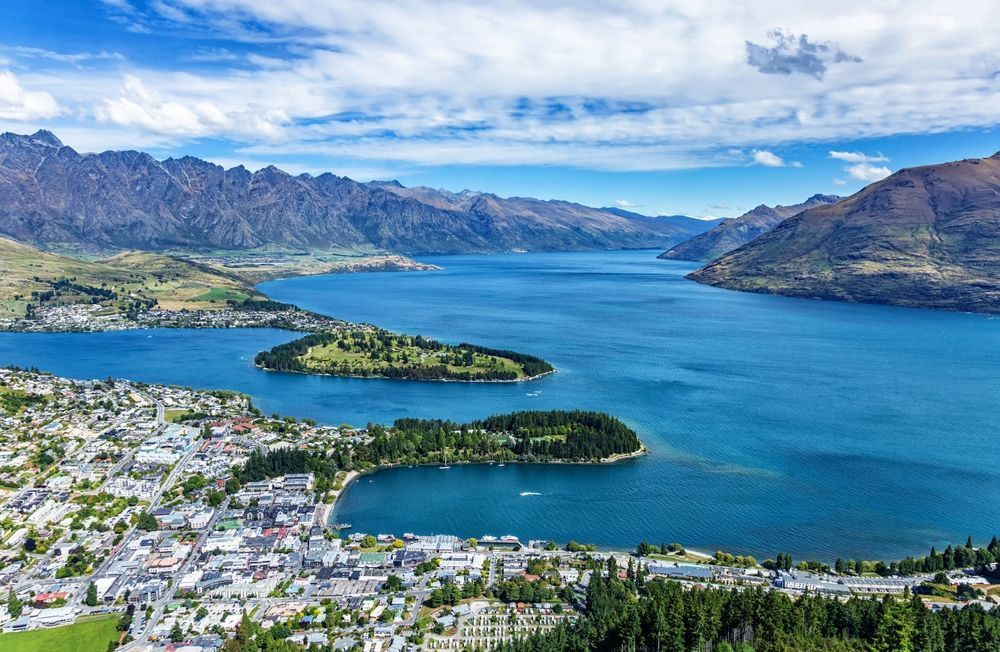Practise Medicine and Dentistry in New Zealand - A Guide to the Healthcare System
One of the six Anglosphere countries, New Zealand has a world class healthcare system comprising a large publicly funded medical system and complementary private sector. There are five tertiary medical centres, two medical and dental schools, almost 20,000 practising physicians and over 3,000 practising dentists.
This article provides an overview of the healthcare sector for physicians and dentists at all career stages seeking opportunities to practice in New Zealand.
A small South Pacific nation island nation, New Zealand has a strong market economy, high standard of living and a commitment to publicly funded healthcare for all citizens and permanent residents. Its healthcare system is highly ranked by the World Health Organisation, surpassing the annual rankings of the healthcare systems of the United Kingdom, United States of America and most European countries.
New Zealand's publicly funded healthcare system, Te Whatu Ora Health New Zealand is supplemented by a smaller private sector which focuses on medical consultations and elective surgery. There are five tertiary medical centres, three in the more populated North Island and two in the South Island. North Island tertiary centres are to be found in Auckland, Wellington and Hamilton. Christchurch and Dunedin host the South Island tertiary medical centres. A network of secondary care hospitals, rural hospitals and medical clinics links with the tertiary centres providing comprehensive care from remote to urban locations.
New Zealand has two highly rated medical and dental schools, Auckland and Otago providing undergraduate bachelor degrees and postgraduate education. These are located in Auckland University (Medicine), Auckland University of Technology (Dentistry) and Otago University in Dunedin.
New Zealand has almost 20,000 registered doctors and over 3,000 practising dentists. 41% of practising doctors are international medical graduates (IMGs), defined as physicians whose primary medical education was obtained outside of New Zealand, and the Medical Council of New Zealand reports that over 70% of IMGs remain in New Zealand for over 1 year.
New Zealand is a popular destination for doctors and dentists seeking a career within one of the world's best healthcare systems combined with a leisurely lifestyle featuring long vacations, an excellent choice of outdoor activities and the climate suitable to their pursuit. There are opportunities at all career levels from PGY1 internship and resident medical officer training to fully qualified general practitioners and specialists.
The History of the Development of New Zealand's Healthcare System
New Zealand's healthcare system is rooted in the culture of its two founding communities, the indigenous Maori population which forms almost 20% of the total population and that of the European settlers and non Polynesian peoples (Pakeha) who comprise the 80% majority. The former is holistic and community focused, the latter more individualistic. But over time a consensus developed that government has a fundamental role in providing essential medical care for the population.
The passage of the Social Security Act in 1938 following the extreme hardships of the great depression, established New Zealand as a welfare state. This act is important in the history of politics and social welfare. It established the first social security system in the world and paved the way for the eventual achievement of the government's goal of universal health coverage funded by taxation.
Interestingly, the greatest opposition to state funded healthcare came from the New Zealand Branch of the British Medical Association (BMA) which objected to the implementation of free general practitioner consultations on the grounds that the unique and confidential doctor patient relationship would be compromised by the imposition of the state.
Initially doctors refused to accept a state fee for their services arguing that the doctor–patient relationship was dependent on direct payments from the patient. It was only in 1941 that a compromise was reached between physicians and government whereby doctors charged patients directly and patients could then claim a social security refund.
Since that time, universal tax payer funded healthcare has continued in New Zealand and currently all citizens and permanent residents have access to medical and dental care, free at the point of delivery. No citizen or permanent resident can be denied treatment in public hospitals. In practice, however, the availability and quality of medical services varies by location and service. The Maori population have persistently poorer healthcare outcomes, more limited access to medical services and shorter life expectancy than the rest of the population.
The Role of Government in Healthcare
The national government of New Zealand dominates all aspects of healthcare as its primary funder and supplier. It sets healthcare policy, strategy, goals and regulations and monitors compliance. Once the government has defined the national health care policy agenda and service requirements, it then determines an annual overall budget and benefit package, based largely on political priorities and health needs.
Government-funded and government-appointed entities dominate healthcare governance structures. Some operate at arm’s length from the central government, such as the Health and Disability Commissioner, which champions consumers’ rights in the health sector. Others are “crown agents,” funded by government, with their own boards, and are required to follow government policy.
Key Government Healthcare Agencies
The Ministry of Health: this has overall responsibility for the health and disability system, acts as the Minister of Health’s principal adviser on health policy, and maintains a role as funder, monitor, purchaser, and regulator of health and disability services.
The Technology and Digital Services business unit: this unit within the Ministry of Health, is responsible for implementing the government’s Digital Health Strategy and other e-health initiatives.
The Capital Investment Committee: this is a Ministry of Health subcommittee which advises on matters relating to capital investment in the public health sector in accordance with the government’s service plans.
Health Workforce New Zealand: this organisation leads and supports health and disability workforce training and development.
NZ Health Partnerships: this organisation is owned and supported by Te Whatu Ora Health New Zealand and is responsible for helping the health service pursue bulk procurement of medical equipment, devices, and services including banking.
The Pharmaceutical Management Agency of New Zealand: this agency assesses the effectiveness of drugs, distributes prescribing guidelines, and determines the inclusion of drugs on the national formulary.
The Health Quality and Safety Commission: this commission is working towards the goals of improved quality, safety, and experience of healthcare; improved health and equity for all populations; and better value for public health system resources.
The Health Promotion Agency: this agency develops and enables health-promoting policy, initiatives, and environments.
The Health Research Council: this council invests in a broad range of research on issues important to New Zealand.
According to the World Bank, total health spending in New Zealand is about 9.74 % of GDP with public spending accounting for about 77% of the total.
All citizens and permanent residents have access to a broad range of medical services which are largely publicly financed through allocations from pooled general taxes, collected at the national level. One exception is treatments related to accidents, which are covered by a no-fault accident compensation scheme. Nonresidents, including tourists and undocumented immigrants, are charged the full cost of services by public health care providers.
Until July 2022 healthcare was administered regionally via twenty district health boards which provided primary medical services, hospital in patient and out patient care, psychiatric care, public health, long term care and dental care. In July 2022, the district health boards were replaced by a single healthcare organisation Te Whatu Ora Health New Zealand which has responsibility for planning, purchasing, and providing health services nationally with local delivery via the hospitals and clinics of the former district health boards.
Public Health Services Provided By Te Whatu Ora Health New Zealand
- preventive care including immunisations and cancer screening
- inpatient and outpatient hospital services
- primary care via private providers, except for certain services, such as optometry, adult dental services, orthodontics, and physiotherapy
- maternity services
- physical therapy
- durable medical equipment
- inpatient and outpatient prescription drugs included on the national formulary
- mental health care
- dental care for schoolchildren
- long-term care
- home help
- hospice care
- disability support services.
Cost-Sharing for GP Services and Prescribed Drugs
Most visits to a General Practitioner (GP) attract a fee or co-payments for the service of the physician and many of the nursing services provided in GP clinics. The average adult copayment for a GP consultation varies significantly, from NZD 15 to NZD 50. In general, the government does not set limits on GP copayments. For drugs prescribed by GPs and private specialists, copayments of NZD 5.00 are required for the first 20 prescriptions per family per year, after which there are no copayments.
Primary care is mostly free for children ages 13 and under and is subsidized for the 98 percent of the population enrolled in networks of primary health organizations. Patients who have had more than 12 GP visits in a year can apply for a high-use health card, which reduces the amount they owe in copayments. Low-income people can also lower their copayments by seeking a community services card.
Private Health Insurance
Private health insurance is offered by a variety of organisations, both profit and non profit making, for coverage of private elective surgery, faster access to non urgent treatment, private specialist consultations and coverage of cost sharing fees. About one-third of the population has some form of private insurance, and it is purchased predominantly by individuals.
Physician Services and Remuneration
All physicians practising in New Zealand must be registered with the Medical Council of New Zealand (MCNZ), the sole national medical regulatory authority for physicians. The MCNZ is responsible for maintaining a register of physicians, issuing annual licences to practise, upholding standards of medical practice and the administration of the NZREX exams for international medical graduates who wish to practise in New Zealand.
There is no limit to the number of registered physicians. However, there are only two medical schools in New Zealand; The University of Auckland in the North Island and the University of Otago in Dunedin in the South Island. Both universities are public and funded by the government which determines the number of places available for study.
New Zealand has a shortage of junior doctors working at the house officer and registrar level, collectively called resident medical officers (RMOs) and attracts recently qualified physicians from Australia, UK, Ireland and other European countries which are considered to have comparable healthcare systems to New Zealand. (For details of how to register with the MCNZ, please read our article on medical professional registration in New Zealand.). There are vacancies across New Zealand for junior doctors in accredited training roles and non accredited service positions in most specialties.
New Zealand's postgraduate medical training in supervised by the Australian and New Zealand medical specialist colleges which determine the qualifications for entry to specialist training, the modules of basic and advanced training and the standards required to complete the fellowship examinations.
The colleges also restrict the number of accredited training positions available. This leaves New Zealand with a chronic shortage of specialists in several fields, particularly psychiatry, anaesthesia, radiology, emergency medicine, obstetrics and gynaecology and internal medicine.
New Zealand is a popular choice of work location for international medical graduates at the levels of junior doctor, specialist and general practitioner. Salaries are compatible to and sometimes better than the equivalent offerings from the UK's National Health Service (NHS) whilst the work conditions are superior with generally lighter workloads leaving more time for study and recreation. For Canadian and American residents, New Zealand offers considerably higher salaries, affording the opportunity to pay off medical school debt.
New Zealand's postgraduate training and fellowships are excellent, internationally highly rated and accepted by most leading medical regulatory authorities across the world.
Primary Medical Care
General Practitioners are responsible for the provision of primary care in the community and act as the gate keepers to specialist services. Their role includes preventative medicine and the management of chronic conditions. Patient registration with a general practice is not mandatory in New Zealand, but GPs and primary health organizations must have a formally registered patient list to be eligible for government subsidies. Patients enroll with a GP of their choice; in smaller communities, choice is often limited.
An average of 3-4 GPs work together in each practice, assisted by practice nurses. Nurses are paid a salary by GPs and have a significant role in the management of long-term conditions like diabetes, incentivised by government funding for chronic care management.
GPs are usually independent and self-employed. Most belong to one of about 30 primary health organizations (PHOs), which are networks of providers. Approximately 50% of GP income derives from capitated, government-determined national subsidies, paid through the primary health organizations. The capitation rate is periodically adjusted in negotiations with GPs and primary health organizations.
The remaining 50% of GP income comes from patient copayments, set by individual GPs, and payments from the Accident Compensation Corporation. In general, copayments are not regulated by any fee schedule; however, the government caps copayments for New Zealanders residing in low-income areas. A higher annual per-patient capitation rate is paid to GPs for these low-income patients.
Primary health organizations receive additional per-capita funding to improve access (especially for low-income and vulnerable populations) and to aid in promoting health, coordinating care, and providing additional services for people with chronic conditions. In some cases, this support has led to the development of multidisciplinary care teams that may include specialists, such as nutritionists or podiatrists.
Primary health organizations also receive an incentive-type payment, up to 3 percent in additional funding, that can be shared with GPs who reach recommended targets for disease screening and follow-up, as well as for vaccinations. GPs have an average income of NZD 180,000–200,000 (GB£ 92,800 - 103,500) per year. GPs who own their own clinics earn more.
After-hours medical care
The funding contracts of GPs require that they provide after-hours care for their patients or arrange for its provision by others. They receive a separate government subsidy for doing so, which is a higher per-patient rate than the general capitation rate. In rural areas and small towns, GPs work on call; in some of these areas, a nurse practitioner with prescribing rights may provide first-contact care.
In cities, GPs tend to provide after-hours service on a roster at purpose-built, privately owned clinics in which they are shareholders. These facilities employ their own support staff, such as nurses, but patients usually see a GP in the first instance. Patient charges at these clinics are higher than those for services during the day (except for most children under age 13, who can get free after-hours GP services). Consequently, some patients will visit a hospital emergency department instead of after-hours clinics or avoid after-hours services altogether.
A patient’s usual GP routinely receives information on after-hours encounters. The public also has access to the 24-hour, seven-day-a-week phone-based “Healthline,” staffed by nurses who provide advice in response to general health questions.
Specialist Medical Care
Most specialists are employed by Te Whatu Ora Health New Zealand to work in the public hospitals and receive a salary at a level determined by negotiated national pay scales. The average public hospital specialist salary range is NZD 190,000 - 270,000 (GB£ 98,000 - 139,217) for the basic 40 hour working week with additional payments for on call and additional duties with a total in the range of NZD 200,000 -450,000 pa.
Private specialists are concentrated in larger urban centers and set their own fees, which vary considerably; insurance companies have little, if any, control over those fees. Insurers pay private specialists only up to a maximum set amount, with patients liable for any difference.
Patients pay the full cost of private specialist visits up front, unless the service is funded by the Accident Compensation Corporation or by private insurance. In the latter case, patients may seek reimbursement from their insurer, or there may be no direct patient charge if a specialist or private hospital holds a contract with the insurer.
Hospitals
Public hospitals form the majority of New Zealand hospitals and provide all emergency and intensive care. They receive a budget from their owners, Te Whatu Ora Health New Zealand, based on historic utilisation patterns, population needs projections, and government goals in areas such as elective surgery. The budget includes the costs of health professionals and other staff, all of whom are salaried. Within a public hospital, the budget tends to be allocated to the various inpatient services using a case-mix funding system, although some services are funded regardless of case mix.
A proportion of district health board funding for elective surgery is held by the Ministry of Health, and payments are made on delivery of surgery. Following a pay-for-performance-type scheme, payments can be withheld if a hospital does not meet elective targets. Certain areas of funding, such as mental health, are “ring-fenced”; hospitals must spend the money on a specified range of services.
Private-hospital patients with complications are often admitted to public hospitals, in which case the costs are absorbed by the public sector.
Psychiatry
Te Whatu Ora Health New Zealand delivers a range of mental health services including acute inpatient, and community-based services, old age psychiatry, child and adolescent psychiatry, liaison psychiatry, substance abuse and addictions services, forensic psychiatry and learning disabilities.
Services are delivered from hospitals and community and school clinics throughout the country by mental health teams comprised of a mixture of disciplines lead by psychiatrists. Clinical psychologists, social workers and psychiatric nurses are included in the mental health teams. Services have been recently redesigned for improved patient access and effectiveness.
Most patients access mental health care via GP referral to community-based primary mental health services and hospital specialist secondary care services. There are some non government providers of community-based services. Private provision in psychiatry is limited.
Long-term Care and social supports
Public funding for long-term care is based on a patient needs assessment, age, and means-testing. Services are funded for those over age 65 and those “close in age and interest” (e.g., people with early-onset dementia or a severe age-related physical disability).
Eligible individuals receive comprehensive services, including medical care and home care. Respite care is available for informal or family-member caregivers and, in some circumstances, ongoing financial support is provided.
Residential facilities, mostly private, provide long-term care. Public hospitals also provide hospital- and community-based palliative care. Around 33 percent of people over age 65 who receive support live in some form of aged residential care, with the remainder receiving home-based services.
Disability support services for those under age 65 are purchased directly by the Ministry of Health. Some disabled people opt for individualized funding, which enables disabled people to directly manage their disability supports.
End-of-life care in New Zealand is provided in a range of settings, including hospitals, a network of hospices, aged residential care, and the individual’s home.
Long-term care subsidies for older people are means-tested. Individuals with assets over a given national threshold pay the cost of their care up to a maximum contribution. Those with assets under the allowable threshold contribute all their income, except for a small personal allowance. Public funds cover the difference between a person’s payments and the contract price for residential care.
Dentistry Services
Dental services are privately provided in New Zealand with the exceptions listed below. A range of basic preventive, treatment and specialist dental services are available to eligible children and adolescents up until 18th birthday. A limited range of services for some adults is publicly funded. The main publicly funded services are outlined below.
Children up to School Year 8
Dental education, preventive and basic treatment services are provided free of charge to pre-school and primary school age children through the Community Oral Health Service. Parents can enrol their children directly or referrals can be made by Well Child providers or general practitioners.
Dental and oral therapists provide most services and dentists provide more specialised treatment if necessary. Dental assessments and treatments usually take place in community-based clinics, often located on school sites, or in mobile dental units. Some treatments are not free, such as orthodontics (including braces, for example).
Adolescents – up to 18th birthday
A range of free basic dental services is funded for adolescents until their 18th birthday. Services are usually provided by private dentists who are contracted by the local district health board to provide free services for adolescents. The Community Oral Health Service will normally provide enrolment information at the end of school year 8, or adolescents can enroll directly with a contracted dentist.
Special-needs dentistry
Children and adults with special medical needs (such as cleft palate) or disabilities that make them unable to access normal dental services or who require dental treatment as part of other treatment (such as for head or neck cancer) can receive free hospital dental services. Part-charges apply for outpatient services, but services are free where a patient needs to be admitted (for example, if they need a general anaesthetic).
Referrals are usually made by dental and oral health therapists, private dentists, or general practitioners.
Emergency dental services for adults
Emergency pain relief and extractions are provided through hospital dental departments, or by contracted private dentists. These services are restricted to people on low incomes (usually demonstrated by having a Community Services Card). Part charges may apply.
Dental treatments for injury
Dental treatment needed due to injury or accident is funded for all people in New Zealand and managed through the Accident Compensation Corporation. Co-payments may be required.
The majority of dentists work in private practices and are paid a salary or commission based upon activity and patient encounters. Earnings can vary considerably depending on the location and size of the practice. Dentists are also employed by district health boards, the army and universities. Qualified dental officers working for a district health board typically have incomes ranging between $120,000 and $186,000.
All practising dentists must register with the Dental Council of New Zealand.
The Future of Health in New Zealand
Health New Zealand has been designed to enable a nationally planned, regionally delivered and locally tailored service which will reduce the pressure on specialist and hospital care and shorten waiting lists for elective surgical procedures and medical treatments. Digital technology is integral to the transformation with the roll out of electronic patient records and telemedicine.
Major financial investments have been planned for healthcare with NZD 7 Billion committed for the construction of new hospitals including Project Maunga for the rebuild of Taranki Hospital and further funding allocated to the Maori health services.
New Zealand has permanent and locum practice opportunities for doctors and dentists eligible for professional registration with the Medical and Dental Councils. Please
contact us to discuss your interest or sign up for
job alerts.
19 August 2024
Share this post on Social Media
Leave a Comment
SEARCH JOBS
Ready for a change? Whether you’re looking for higher compensation, greater autonomy, a better work-life balance, or just a change in scenery, we have job opportunities in wonderful locations across the world. Start your medical or dental job search today and embark on your next career move.
SIGN UP FOR JOB ALERTS
We believe everyone deserves to find their dream job. Be the first to hear about new practice opportunities in exciting locations across the world Simply sign up for job alerts in your chosen field, and we will email you when a new job in your specialty becomes available.


















